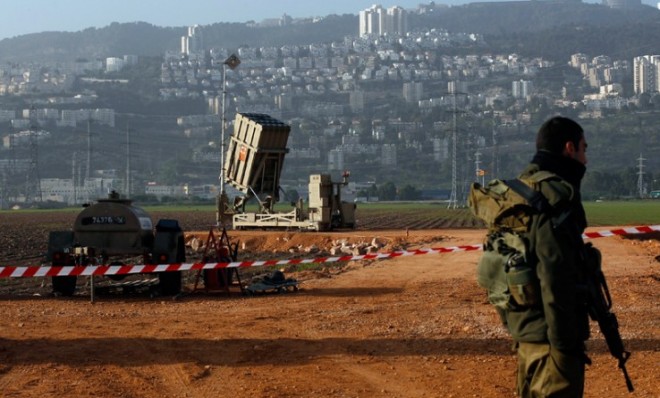Israel's strike on the Syria-Lebanon border: 3 repercussions
The attack reportedly targeted trucks carrying missiles to Hezbollah in Lebanon. Could this widen Syria's war?


A free daily email with the biggest news stories of the day – and the best features from TheWeek.com
You are now subscribed
Your newsletter sign-up was successful
Israeli warplanes have reportedly blasted a convoy of trucks driving across the border from Syria to Lebanon, according to several news outlets. Syria denies a convoy was attacked, and claims Israel bombed a military research center in Damascus province. Just Sunday, Israel had threatened to launch a pre-emptive strike, if necessary, to prevent Syria's chemical weapons from falling into the hands of Lebanon's Hezbollah or other Islamist groups, including al Qaeda affiliates. Israel has long worried that Syrian President Bashar Assad, locked in a 22-month civil war, could lose control of his stockpile of sarin nerve gas components and other chemical arms. How would an Israeli attack in foreign territory affect the threat that Syria's crisis could spill over its borders? Here, three possible repercussions:
1. Hezbollah could be weakened
Officials in the region said the target of the airstrike was a truck convoy carrying Russian-made SA-17 anti-aircraft missiles, reports The Associated Press. If that's true, Israel might just have dodged a bullet. Syria has advanced anti-aircraft defense systems, including the Russian-made SA-17 and, Israel believes, S-300 long-range anti-aircraft missiles, writes Laura Rozen at Al-Monitor (via The Washington Post). Israeli security experts say "Israel would consider it a 'game changer," Rozen writes, "if Hezbollah acquired such advanced systems, that would 'change the balance of power' between Israel and Hezbollah, and interfere with Israel's ability to overfly Lebanon and deter Hezbollah."
The Week
Escape your echo chamber. Get the facts behind the news, plus analysis from multiple perspectives.

Sign up for The Week's Free Newsletters
From our morning news briefing to a weekly Good News Newsletter, get the best of The Week delivered directly to your inbox.
From our morning news briefing to a weekly Good News Newsletter, get the best of The Week delivered directly to your inbox.
2. Iran might retaliate
"It's unclear on which side of the border the strike took place," says Abby Ohlheiser at Slate, and that's "a pretty important piece of information to nail down." Lebanese officials are insisting the attack didn't take place on their territory, and Israel isn't acknowledging any strike at all. If the convoy was still inside Syria when it was hit, that "would be much more diplomatically dicey for Israel." Why? It would all but guarantee "some sort of response from Iran," which is Syria's main ally in the region. Iran had just warned on Saturday that it would consider any attack on Syria to be an attack on itself.
3. Assad may think twice about helping Israel's enemies
Israel's recent warnings may have been "a reminder of a reminder that it has "a standing policy of pre-emptive strikes," says Reuters. And putting out the word a few days ahead of time might have been "intended to limit surprise in world capitals." By warning about the raid but not confirming that it actually happened, Reuters continues, "Israel may have ensured that Assad did not feel obliged to retaliate. For 40 years, Syria has offered little but bellicose words against Israel." This attack might have shown the Assad regime what will happen if, now that it's getting desperate, it is tempted to take action and arm Israel's enemies.
A free daily email with the biggest news stories of the day – and the best features from TheWeek.com
Harold Maass is a contributing editor at The Week. He has been writing for The Week since the 2001 debut of the U.S. print edition and served as editor of TheWeek.com when it launched in 2008. Harold started his career as a newspaper reporter in South Florida and Haiti. He has previously worked for a variety of news outlets, including The Miami Herald, ABC News and Fox News, and for several years wrote a daily roundup of financial news for The Week and Yahoo Finance.
-
 The Olympic timekeepers keeping the Games on track
The Olympic timekeepers keeping the Games on trackUnder the Radar Swiss watchmaking giant Omega has been at the finish line of every Olympic Games for nearly 100 years
-
 Will increasing tensions with Iran boil over into war?
Will increasing tensions with Iran boil over into war?Today’s Big Question President Donald Trump has recently been threatening the country
-
 Corruption: The spy sheikh and the president
Corruption: The spy sheikh and the presidentFeature Trump is at the center of another scandal
